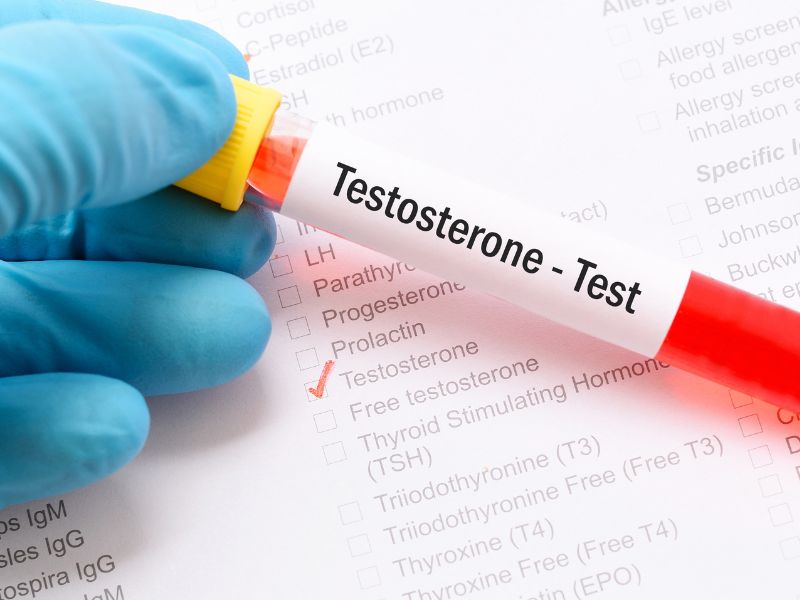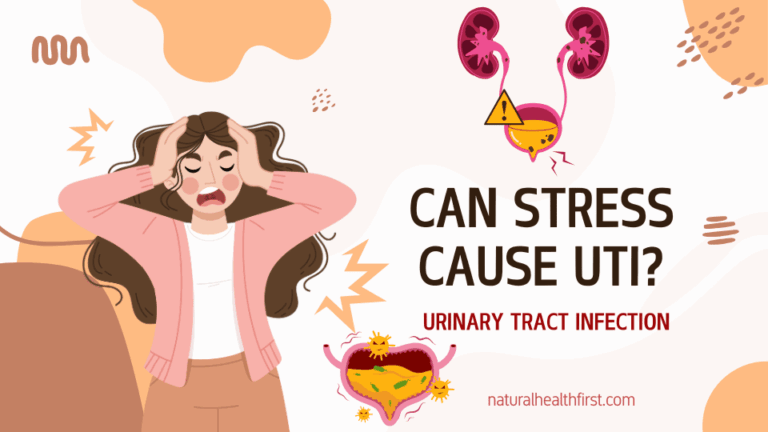Men’s health has gained serious attention in recent years as more men are prioritizing wellness, preventive care, sexual health, hormone balance, and overall vitality. With the rise of specialized men’s health clinics across the globe, many are now asking the key question: how much does a men’s health clinic cost, and what do you really get for your money?
In this in-depth guide, we’ll break down the cost structures of men’s health clinics, what services are included, how insurance may or may not cover expenses, and how these costs compare to traditional healthcare. We’ll also explore natural and lifestyle-based alternatives that can help men improve their health affordably.
Whether you’re considering testosterone replacement therapy, fertility services, or general wellness programs, understanding the true costs will help you make an informed decision.
Why Men’s Health Clinics Are Becoming Popular
Men’s health clinics focus exclusively on conditions that affect male wellness, including:
- Hormone imbalances (low testosterone, thyroid issues)
- Erectile dysfunction (ED) and sexual performance concerns
- Prostate health and urinary issues
- Weight management and metabolic health
- Fertility treatments and counseling
- Preventive screenings and cardiovascular risk assessments
- General wellness, fitness, and nutrition
Unlike general practitioners, these clinics often provide a personalized, concierge-style experience with more time spent per patient. They also integrate lifestyle and natural health strategies in many cases.
For men who have struggled with long waiting times, rushed doctor visits, or lack of targeted care, these clinics can be life-changing — but the costs can vary widely.

Understanding Men’s Health Clinic Services
Men’s health clinics specialize in addressing health issues that disproportionately affect men or require specialized male-focused treatment approaches. These facilities typically offer a range of services designed to optimize male health, performance, and longevity. The scope of services directly impacts the overall cost structure you’ll encounter.
Common services include hormone optimization, particularly testosterone replacement therapy, which has become increasingly popular as men seek to address age-related hormonal decline. Sexual health treatments, including erectile dysfunction therapy and premature ejaculation treatments, represent another significant service category. Many clinics also provide comprehensive health screenings, focusing on conditions like prostate cancer, cardiovascular disease, and metabolic disorders that commonly affect men.
Preventive care services often include annual physical examinations tailored to male health concerns, blood work panels that test for hormone levels and disease markers, and lifestyle counseling addressing nutrition and fitness optimization. Some advanced clinics offer cutting-edge treatments like peptide therapy, growth hormone treatments, and regenerative medicine approaches.
The breadth of services offered by a particular clinic significantly influences pricing structures. Comprehensive clinics with extensive service offerings typically charge higher consultation fees but may offer package deals that provide better value for patients requiring multiple treatments.
Core Services Offered:
- Hormone Optimization
- Testosterone replacement therapy (TRT)
- Growth hormone treatments
- Thyroid optimization
- Adrenal support
- Sexual Health Solutions
- Erectile dysfunction treatments
- Premature ejaculation therapy
- Low libido interventions
- Performance enhancement
- Preventive Care & Screening
- Comprehensive health assessments
- Prostate cancer screening
- Cardiovascular risk evaluation
- Metabolic disorder prevention
- Advanced Treatments
- Peptide therapy
- Regenerative medicine
- IV nutrient therapy
- Body composition optimization
Factors That Influence Men’s Health Clinic Costs
The price of men’s health clinics depends on several important factors:
- Location: Clinics in metropolitan areas often charge more due to higher overhead.
- Type of Clinic: A boutique or luxury “wellness center” may cost more than a local urology clinic.
- Services Offered: Some clinics focus only on hormone therapy, while others offer full-spectrum men’s health programs.
- Insurance Acceptance: Many men’s health clinics operate on a cash-only or concierge model, which affects affordability.
- Duration of Care: Some treatments require ongoing monthly visits and medications, while others may be one-time consults.
Typical Cost Breakdown
Below is a general cost breakdown of what you might expect at a men’s health clinic:
| Service | Average Cost (USD) | Notes |
|---|---|---|
| Initial Consultation | $100 – $500 | Includes medical history, labs, and first evaluation |
| Hormone Testing (Testosterone, etc.) | $50 – $300 per panel | May include additional thyroid, cortisol, and vitamin panels |
| Testosterone Replacement Therapy (TRT) | $100 – $500/month | Varies by injection, gels, or pellets |
| Erectile Dysfunction Treatments | $300 – $1,000/month | Includes medications, shockwave therapy, or PRP |
| Weight Management Programs | $150 – $500/month | May include nutrition, coaching, or medications |
| Fertility Treatments & Counseling | $500 – $5,000+ | Costs vary widely depending on treatment complexity |
| Preventive Screening Packages | $200 – $1,000 | Includes cardiovascular, metabolic, and prostate screenings |
| IV Therapy & Wellness Boosters | $100 – $400 per session | Vitamins, NAD+, and recovery IVs |

One-Time Costs vs. Ongoing Care
Some services are one-time fees (such as an initial consultation or a lab test), but most men’s health clinic costs are recurring. For example:
- TRT (Testosterone Replacement Therapy): Ongoing costs include medication, labs every 3–6 months, and doctor follow-ups.
- Weight Loss Programs: Require coaching, monitoring, and sometimes supplements or prescriptions.
- ED Treatments: Medications or therapies typically require long-term usage.
This means the annual cost can easily reach several thousand dollars.
Insurance Coverage: Does It Help?
Insurance coverage for men’s health clinic services varies significantly based on insurance provider, specific policy terms, and medical necessity determinations. Understanding coverage limitations helps patients plan financially for their healthcare investments.
Most insurance plans provide coverage for medically necessary treatments, including testosterone replacement therapy for clinically diagnosed hypogonadism. However, coverage for optimization therapy or preventive treatments often faces restrictions or denials. Patients should verify coverage details before beginning treatment to avoid unexpected expenses.
One of the biggest challenges for patients is insurance coverage.
- Many men’s health clinics do not accept insurance because they operate on a concierge model.
- Insurance may cover basic lab tests and some medications if prescribed, but not the clinic membership or consult fees.
- For TRT, some insurance plans cover testosterone injections but rarely cover gels, pellets, or compounded medications.
This means patients should prepare for out-of-pocket expenses, even if insured.
Insurance Coverage and Payment Strategies
Navigating insurance coverage for men’s health services can be complex, but understanding your options helps minimize out-of-pocket expenses.
Insurance Coverage Likelihood:
| Service Type | Coverage Probability | Typical Coverage | Requirements |
| 🩺 Medical Consultations | 70-80% | 80% after deductible | In-network providers |
| 💉 Medically Necessary TRT | 60-70% | 50-80% | Documented low T |
| 🧪 Diagnostic Labs | 80-90% | 80-100% | Medical necessity |
| 💊 ED Medications | 40-60% | Varies widely | Prior authorization |
| 🔬 Optimization Therapy | 10-20% | Rarely covered | Elective classification |
Payment Options & Strategies:
Health Savings Accounts (HSA)
- Tax Advantage: Pre-tax dollars (20-35% effective savings)
- Annual Limits: $4,300 individual / $8,550 family (2024)
- Rollover Benefit: Unused funds carry forward
Flexible Spending Accounts (FSA)
- Tax Advantage: Pre-tax funding
- Annual Limits: $3,200 (2024)
- Use-It-Or-Lose-It: Must spend within plan year
Clinic Payment Plans
- Interest-Free Options: 6-12 month payment plans
- Monthly Subscriptions: $200-$500/month all-inclusive packages
- Package Discounts: 10-20% savings on bundled services
Membership & Subscription Models
Many men’s health clinics now use a subscription or membership model, which includes a set of services for a monthly or annual fee.
Example of Membership Packages:
| Package | Monthly Cost | Included Services |
|---|---|---|
| Basic Plan | $99 – $150 | Consultation, labs at discount, limited support |
| Hormone Optimization | $200 – $400 | TRT, monitoring, follow-ups, unlimited messaging |
| Premium Wellness | $500 – $1,000+ | Full lab panels, coaching, ED treatments, supplements |
This model allows predictable costs but may be more expensive upfront.
Comparing Men’s Health Clinics to Traditional Care
When comparing men’s health clinics with a primary care physician (PCP) or urologist, the cost difference is clear:
| Aspect | Men’s Health Clinic | Primary Care/Urologist |
|---|---|---|
| Consultation Time | 30–60 minutes | 10–20 minutes |
| Focus | Specialized in men’s health | General medicine |
| Cost | $200–$1,000 per visit | $20–$100 with insurance |
| Personalization | High | Moderate |
| Insurance Use | Rarely accepted | Commonly accepted |
| Holistic Approach | Often included (nutrition, lifestyle) | Rare |
The Hidden Costs of Men’s Health Clinics
Patients should also be aware of hidden costs, which can add up quickly:
- Additional labs not included in packages
- Supplements or nutraceuticals sold in-clinic
- Special therapies like platelet-rich plasma (PRP) or shockwave therapy
- Travel costs if the clinic is far away
- Psychological counseling or sexual therapy add-ons
Natural and Lifestyle Alternatives to Reduce Costs
Not every man needs expensive monthly therapies. Many health concerns can be addressed with natural and lifestyle-based strategies:
- Nutrition: A balanced diet with whole foods, high-quality proteins, and micronutrient-rich vegetables can boost energy and hormone balance. Explore nutrition tips here.
- Exercise: Regular strength training and cardiovascular exercise naturally raises testosterone and improves cardiovascular health. See lifestyle improvements.
- Stress Management: Yoga, meditation, and sleep hygiene can reduce cortisol, improving overall hormonal balance.
- Weight Loss Naturally: Losing abdominal fat through diet and movement often helps restore testosterone and reduce ED symptoms.
- Supplements: Some men benefit from natural options like zinc, vitamin D, ashwagandha, and omega-3 fatty acids.
For some men, these approaches may reduce or delay the need for costly medical treatments.

Cost Comparisons by Clinic Type
To give a clearer picture, here’s how clinic types compare:
| Clinic Type | Average Monthly Cost | Services Included |
|---|---|---|
| Local Urology Practice | $50 – $200 (with insurance) | ED meds, prostate care, general urology |
| Men’s Health Boutique | $200 – $800 | TRT, ED treatments, coaching |
| Luxury Wellness Center | $1,000 – $5,000+ | Concierge service, advanced therapies, supplements |
| Telehealth TRT Clinics | $100 – $300 | Virtual consults, testosterone shipped monthly |
International Costs
In some countries, men’s health clinics are much more affordable:
- India & Southeast Asia: TRT for $30–$80/month.
- Europe: Many public systems cover screenings and basic ED meds.
- USA & Canada: Higher costs due to private models and medications.
This leads some patients to medical tourism for treatments.
Is It Worth the Cost?
The real question: are men’s health clinics worth it?
Pros:
- Highly personalized care
- Direct access to specialists
- Focus on preventive health and performance
- Improved quality of life
Cons:
- High out-of-pocket cost
- Potential over-prescription of therapies
- Not always evidence-based
- Insurance rarely applies
For many men, the investment is worthwhile — especially if they value time, privacy, and specialized care.
Tips to Save on Men’s Health Clinic Costs
- Ask for a full breakdown before signing up.
- Compare multiple clinics — both local and telehealth.
- Check your insurance for lab and medication coverage.
- Consider natural strategies first before medical interventions.
- Avoid unnecessary add-ons like overpriced supplements.
- Use HSA/FSA accounts if available to cover costs.
The Role of Natural Health in Men’s Wellness
At Natural Health First, we emphasize that men’s health is not just about expensive therapies — it’s about building sustainable habits that protect your vitality long-term.
- For men: Explore men’s health strategies including natural testosterone support, ED prevention, and stress management.
- For women (partners & family): Learn more about women’s health to support holistic family wellness.
- For nutrition guidance: Visit our nutrition section to learn about foods that fuel hormone balance.
- For lifestyle changes: Explore lifestyle tips that naturally boost energy and reduce long-term healthcare costs.
Final Thoughts
So, how much does a men’s health clinic cost? The answer depends on where you go, what services you need, and whether you rely on ongoing therapies.
- Initial consultations usually cost $100–$500.
- Monthly treatment plans range from $100–$1,000+.
- Annual expenses can range from $2,000 to $12,000+ for comprehensive care.
For some, this investment is absolutely worthwhile — restoring energy, sexual health, and overall confidence. For others, a combination of traditional healthcare, insurance-covered visits, and lifestyle improvements may be the most affordable path.
In the end, your health is your greatest asset. Knowing the costs, benefits, and natural alternatives empowers you to make the right decision for your wellness journey.
How much does an initial consultation at a men’s health clinic typically cost?
Initial consultations at men’s health clinics typically range from $150 to $600, depending on the clinic type and location. Standard medical clinics charge $150-$250, specialized men’s health centers cost $250-$400, while premium concierge clinics can charge $400-$600. Telemedicine consultations are the most affordable option at $50-$150. The consultation usually includes a comprehensive health assessment, medical history review, physical examination, and treatment planning discussion.
What is the monthly cost of testosterone replacement therapy (TRT)?
Monthly TRT costs vary significantly by delivery method: testosterone injections cost $150-$400 monthly (most cost-effective), gels and creams range from $200-$500, patches cost $250-$450, and pellet therapy runs $300-$600 per month (paid quarterly at $900-$1,800 per session). Additional expenses include regular blood work monitoring ($100-$300 every 3-6 months) and follow-up appointments ($150-$250 per visit), bringing total monthly costs to $200-$800 depending on your treatment protocol.
Does insurance cover men’s health clinic services?
Insurance coverage varies significantly by service type and medical necessity. Medical consultations have 70-80% coverage likelihood if using in-network providers, while medically necessary TRT has 60-70% coverage with documented low testosterone. Diagnostic labs are usually 80-90% covered, but ED medications have only 40-60% coverage probability. Optimization therapy and elective treatments are rarely covered (10-20% chance). Always verify coverage with your insurance provider before starting treatment.
How can I reduce the costs of men’s health clinic services?
Several strategies can significantly reduce costs: use HSA/FSA accounts for 20-35% tax savings, choose generic medications over brand names for 50-70% savings, consider home testing kits for 30-50% lab cost reduction, look for clinic membership programs offering 20-30% discounts, bundle services for package deal savings, and start with basic treatments before adding premium services. Shopping around and comparing prices between multiple clinics can also reveal significant cost variations.
How do men’s health clinic costs vary by geographic location?
Geographic location dramatically impacts pricing, with major metropolitan areas like San Francisco, NYC, and Los Angeles charging 30-60% above national averages. Suburban areas typically align with national averages, while small cities cost 20-30% less, and rural areas offer the lowest prices but with limited service availability. For example, annual TRT costs might range from $1,950-$3,850 in rural areas compared to $5,200-$7,800 in major cities. Some patients find savings by traveling to lower-cost markets for initial setup, then maintaining care through telemedicine.RetryClaude can make mistakes. Please double-check responses.








